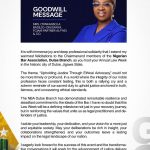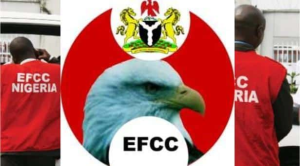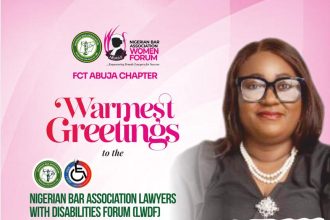The recent spate of unruly passenger conduct during domestic flights in Nigeria has intensified debates over acceptable in-flight behaviour, aviation safety, and disciplinary measures.
Two high-profile cases have taken centre stage: that of Fuji musician Wasiu Ayinde Marshal (Kwam 1) and Ms. Comfort Emmanson, both accused of breaching aviation regulations, resulting in flight disruptions.
While Kwam 1 was allegedly placed on a six-month “no-fly” list by the Nigerian Civil Aviation Authority (NCAA) and the Minister of Aviation, Festus Keyamo, reports indicate that Ms. Emmanson has been placed on a lifetime no-fly list by the Airline Operators of Nigeria (AON).
It is this latest measure — the lifetime ban — that Senior Advocate of Nigeria and public commentator Dr. M.O. Ubani has described as raising profound legal, procedural, and constitutional concerns.

Dr. Ubani points to Section 36(1) of the 1999 Constitution (as amended), which guarantees the right to a fair hearing before a court or tribunal established by law in determining a person’s rights or obligations.
He argues that the AON’s unilateral action to impose a lifetime, industry-wide ban without allowing the passenger to be heard violates the principle of audi alteram partem.
“This decision is punitive in nature,” Ubani says, “and impacts the passenger’s right to freedom of movement and access to lawful transport services, yet it was taken without judicial process.”
Section 41 of the Constitution also guarantees every citizen the right to move freely within Nigeria and to travel abroad. While an individual airline may refuse carriage for safety reasons under contractual rights, Ubani stresses that an industry-wide lifetime ban by a trade association amounts to a de facto travel ban — a restriction on constitutional rights without a court order.
The lawful regulator of civil aviation in Nigeria is the NCAA, created under the Civil Aviation Act by the National Assembly. NCAA regulations permit airlines to deny boarding to disruptive passengers for safety reasons, but do not empower AON to impose indefinite, industry-wide sanctions.
“Even in countries with strict ‘no-fly’ regimes, such as the United States,” Ubani notes, “such lists are managed by government agencies under statutory frameworks, with periodic reviews and appeal mechanisms. A permanent blanket ban without the possibility of review is disproportionate and should be challenged, especially where no court conviction exists.”

In Ms. Emmanson’s case, she has been arraigned and remanded pending trial — a bailable offence if established. Ubani insists that until a court determines guilt, indefinite industry-wide punishment is premature.
Allowing a trade association to act as accuser, investigator, judge, and executioner, he warns, sets a dangerous precedent for bias and abuse. Disputed facts, such as whether provocation occurred, should be matters for police investigation and criminal prosecution, not unilateral corporate adjudication.
He further notes that the AON’s reference to past incidents involving other public figures, without binding judicial outcomes, risks reputational damage without proof.
Ubani outlines lawful steps for handling such incidents:
- Offload the passenger and report to Aviation Security (AVSEC) and the Nigerian Police Force.
- Pursue prosecution under the Civil Aviation (Security) Regulations or the Criminal Code.
- Where justified, seek a court order imposing travel restrictions.
- Implement any industry-wide ban under NCAA-administered regulations, with a right of appeal to the courts.
While condemning the alleged misconduct of both Kwam 1 and Ms. Emmanson, which he says “falls far short of acceptable standards”, Ubani stresses that justice must remain balanced.
“One party cannot be the accuser, prosecutor, and judge. Without fairness and due process, justice is missing in action,” he concludes.
Dr M.O. Ubani SAN
Legal Practitioner, Public Commentator
Also Read:
Henry Barnabas Ehi Decries Inhumane Treatment of Passenger on Ibom Air Flight









